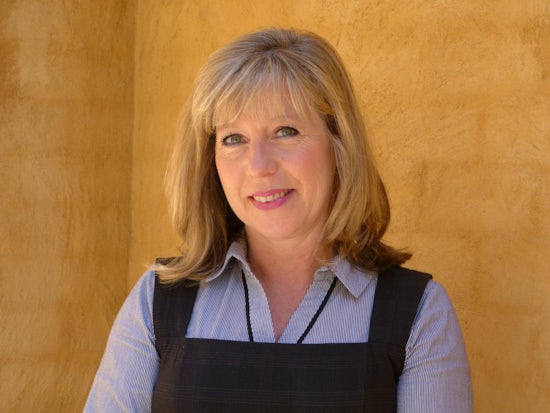Uniting AgeWell ‘honours spirit’ of residents
Australian aged and community care provider, Uniting AgeWell, has been named as a finalist in the category of ‘Best Dementia Program’ at the 6th Ageing Asia Conference in Singapore, for its ‘Namaste’ program which supports residents at the end of their lives.

Allison Patchett, General Manager Innovation and Development.
The Uniting AgeWell palliative program, titled Namaste (which means 'honouring the spirit within') supports residents at the end life, and is inspired by a range of successful pilots that have been run in New South Wales and the UK.
Staff work with residents in an holistic way to stimulate their five senses in a comforting and pleasurable way. This decreases the stress and anxiety of the residents and consequently their families and staff who, in turn, work with calmer, more relaxed residents.
The program produces a cycle of positive reinforcement, which is an incentive for staff to change their practice to a less task focused way of working.
The Namaste approach involves twice daily massage, music and aromatherapy to soothe and gently stimulate residents in a pleasurable way.
Kerry Whitlock, Namaste program manager, says: “Staff learn how to communicate with residents who have limited ability to communicate. The personalised care incorporated in Namaste is specific to the individual. We combine care and comfort needs effectively.
“Our new skin integrity approach, for example, eliminates soap and harsh chemicals. Instead, we nurture the mind and body of the person through nourishing creams and the gentle touch of massage. This is comforting and soothing and we have also found it improves the quality of people’s skin.
“Everyone will now have an iPod mini with a personal playlist. People will also have personal comfort items of their choice like dolls, life-like animals and blankets.”
According to Ms Whitlock, these are simple, low cost pieces of equipment, with the only other cost attributed to staff training.
“We have found the staff are very responsive to the training. Their capacity to communicate with residents with advanced dementia increases, they see that the program is readily implemented and has positive outcomes,” Ms Whitlock says.
Allison Patchett, general manager innovation and development, says: “Statistically we know that few Australians over 65 years die at home. Dementia is a major reason why people move into residential care.”
Ms Patchett claims, particularly as an aged care organisation, Uniting AgeWell wishes to ‘honour the spirit within’ when people are at the end of their lives.
“Everyone wishes that they may depart this world in peace. Dementia can cause agitation in people suffering from it and this agitates the people around them,” Ms Patchett says.
Through the program, the team at Uniting AgeWell are finding straightforward, reproducible ways to calm the person and surround them with a peaceful environment at the end of their life.
Uniting AgeWell is an organisation of the Uniting Church in Australia with a long tradition of providing residential and community services for older Australians.























